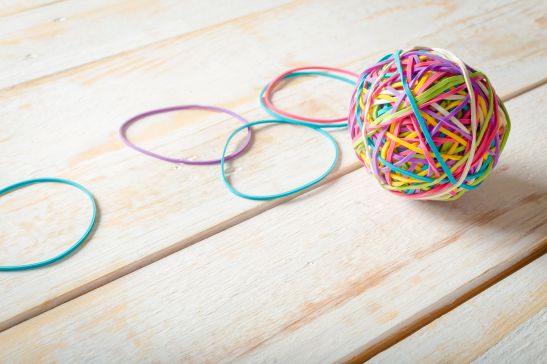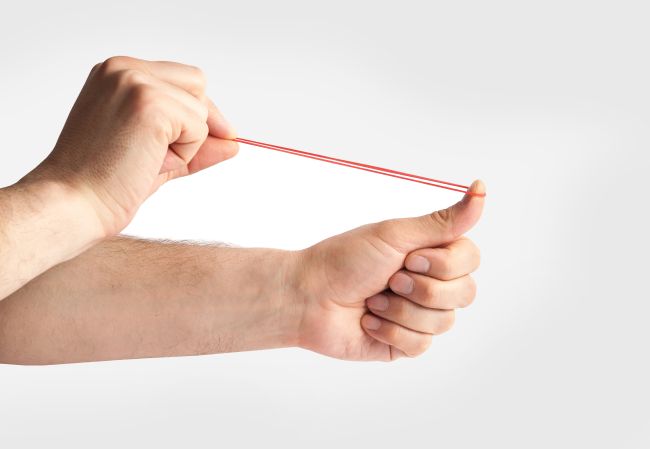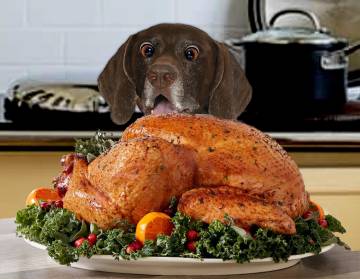Dogs are known for their curious natures! They are curious about many things they encounter around the house, in the yard, or even while on a walk! A dog may even be curious about something as simple as a rubber band lying on the floor!
Connect with a verified veterinarian in minutes. Licensed vets are available 24/7 to answer your questions. No need to worry about your furry family member.
Rubber bands are common in many of our homes. Plus, it’s easy to drop rubber bands on the floor, a table, or some other surface that’s easy for your fur baby to reach. Rubber bands are available in many different versions, including:
- Hair ties: used to hold hair back in a pony table; these may end up on the floor, nightstand, and more
- Toys: some children’s toys use rubber bands for movement
- Mail: can sometimes include a rubber band; these are usually plain (no color) and keep bundles of mail or packages together
- Home office: another place your dog could find rubber bands is in your home office, where they’re put to various uses
Rubber bands are commonly found in other places, such as the living room, kitchen, storage space, or even in the garage.
Another common thing many dogs enjoy playing around with is a rubber ball. In fact, some love to chew on these balls, with some dogs even eating some or all of a rubber ball.

Why Do Dogs Eat Rubber Bands or Rubber Balls?
Dogs are curious about their environment and everything in it. For instance, your fur baby may find a rubber band on the floor and think it looks like a great plaything! But then he decides maybe it would taste good. Or he may accidentally swallow the rubber band when playing with it.
When it comes to rubber balls, a dog may love the squishy feeling they get when squeezing the ball in their jaws. Something like a rubber ball may ease tooth pain, such as teething. As the dog is chewing on the rubber ball, small pieces may come off. Your fur baby may swallow the pieces and not even realize it.
My Dog Swallowed a Rubber Band—Now What?
The answer could depend on how big your dog is and the size of the rubber band, and how many he ate. Rubber bands come in many sizes, and in small or large packages. It’s common to drop a rubber band on the floor and not realize, though your fur baby may eventually happen upon it!
For medium- to large-sized dogs, swallowing one small rubber band probably won’t cause a problem. The small rubber band will most likely just pass through your fur baby’s digestive system with no problem.
However, if your dog is a smaller dog, then the rubber band could cause a choking hazard or even become lodged in his intestines, causing an intestinal blockage. This is a medical emergency, so you’ll need to call the vet immediately.
For larger dogs, if they eat a large number of rubber bands, this can also cause them to become ill and/or develop an intestinal blockage. The ball, or bits of the ball can also pose a choking hazard. Again, if you know the dog has eaten a lot of rubber bands, you’ll need to call the vet immediately, as the bands could cause an intestinal blockage.

Review symptoms, medications & behavior to keep your pets healthy with a Vet Online in just minutes.
Ask a Vet Live NowMy Dog Ate a Rubber Ball—Now What?
The rubber ball can pose a serious choking hazard and is another thing that can cause an intestinal blockage in dogs.
Another problem is that an intestinal blockage can lead to a severe condition called peritonitis, which is an inflammation of the abdomen.
Symptoms of Peritonitis in Dogs
This condition is not just a simple stomach ache. If your fur baby has developed this condition, you may notice these symptoms:
- Rapid breathing
- Vomiting
- Loss of appetite
- Diarrhea
- Decreased pooping
- Unwillingness to lie down
- Painful abdomen
If you notice any of these symptoms in your dog, be sure to call the vet immediately to get their advice on how to proceed. Peritonitis is a serious and often fatal condition.
This condition is usually treated with antibiotics and medicine to reduce the inflammation and treat for shock. urgery is often needed to remove whatever has caused the problem and flush the abdomen.

Intestinal Blockage Symptoms & Treatment
If your fur baby has any of these symptoms, he could have an intestinal blockage:
- Vomiting
- Retching
- Drooling excessively
- Loss of appetite
- Restlessness
- Bloated, painful abdomen
- Constipation or diarrhea
This condition is usually treated with surgery to remove the blockage and may require your dog to stay in the hospital for a few days afterwards.
Swallowing foreign objects, including rubber balls or rubber bands, can pose a serious health issue for your dog. If your dog swallows a small rubber band or just a small piece of a rubber ball, in most cases he’ll be just fine. It’s best to still call the vet to check if you are unsure. But if you notice the symptoms of peritonitis or an intestinal blockage, please call the vet immediately. Your fur baby needs fast treatment, which could save his life.
Connect with a verified veterinarian in minutes. Licensed vets are available 24/7 to answer your questions. No need to worry about your furry family member.

Gemma Cliffin BSC BVSC MRCVS
This article has been reviewed and approved by an independent Veterinarian: Dr Gemma Cliffin MRCVS is an experienced small animal vet who combines her love of writing alongside working in practice. Since her graduation from the University of Liverpool in 2014 she has worked in a wide variety of roles including first opinion practice, as a night vet and as a locum vet. She has also spent time working at a charity clinic in the Cook Islands which was a challenge but also immensely rewarding. She loves all aspects of veterinary work, but she especially enjoys medicine cases and diagnostic imaging. She is passionate about pain-management, particularly in her more senior patients. She currently works in a first opinion small animal practice in North Yorkshire where she deals with both routine and emergency cases.
Review symptoms, medications & behavior to keep your pets healthy with a Vet Online in just minutes.
Ask a Vet Live Now





